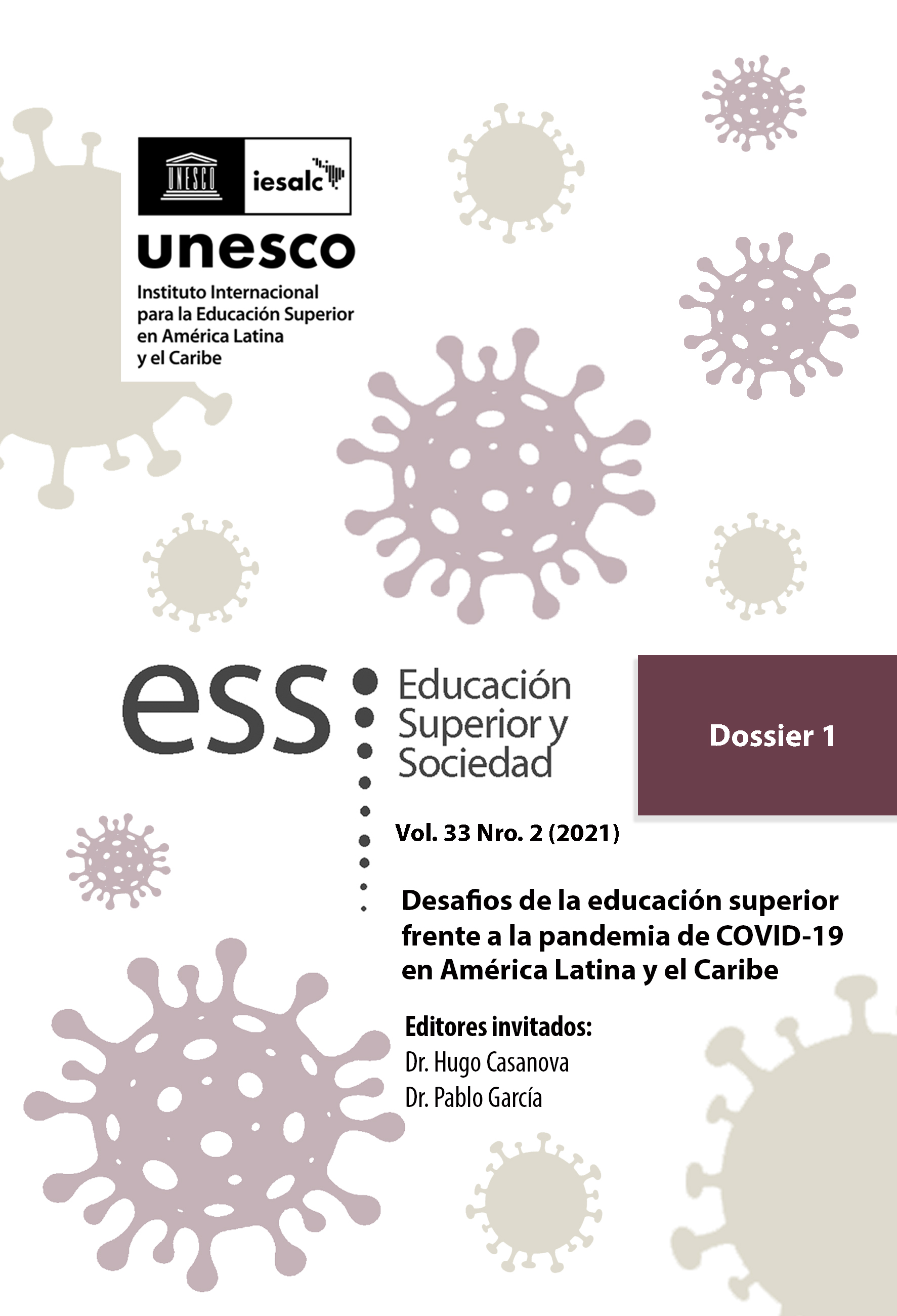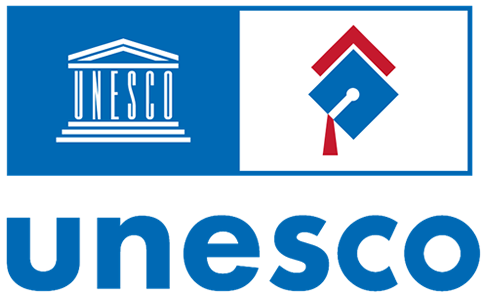Presentación Dossier Temático: Desafíos de la educación superior frente a la pandemia de Covid-19 en América Latina y el Caribe.
Abstract
El gran tema del siglo XXI es hoy el referido a la pandemia de Covid-19. Cada territorio vital, cada ámbito social a lo largo y ancho del mundo, experimenta los efectos de una pandemia que ha desbordado las previsiones de la cosa pública en todos sus niveles y dimensiones, generando un amplio debate en prácticamente cada disciplina académica y científica para elucidar sus riesgos, efectos y alternativas de solución. Es precisamente en el ámbito del conocimiento especializado donde se ubican las mayores expectativas para la contención y manejo de la calamitosa situación surgida al inicio de la tercera década de este siglo. El conocimiento sobre el virus y su capacidad de contagio, el tratamiento médico de los pacientes afectados, así como el desarrollo de mecanismos de prevención –especialmente vacunas y medios físicos para contener los contagios–, han sido abordados desde el amplio espectro de las ciencias de la salud, la biología y la ingeniería, entre otras. En particular, desde las ciencias sociales y las humanidades se han generado numerosas investigaciones que apelan a una problemática que se estudia desde las más diferentes disciplinas: jurídicas, sociales, económicas, antropológicas y educativas, entre otras. Es en ese gran campo donde se encuentran adscritas las reflexiones referidas a la educación superior.

Copyright (c) 2021 Hugo Casanova Cardiel, Pablo Daniel García

This work is licensed under a Creative Commons Attribution-NonCommercial 4.0 International License.
Copyright notice
Copyright allows the protection of original material, and curbs the use of others' work without permission. UNESCO IESALC adheres to Creative Commons licenses in the open access publication of ESS. Specifically, texts published in this journal are subject to a Creative Commons Attribution-NonCommercial 4.0 International (CC BY-NC 4.0) license: ESS is an open access journal, which means that all content is freely available to the user or their institution. Users may read, download, copy, distribute, print, search or link to the full text of the articles, or use them for any other lawful purpose, without asking prior permission from the publisher or the author, always making sure to cite the author. Commercial use is not permitted. ESS requires authors to accept the Copyright Notice as part of the submission process. Authors retain all rights.
The full license can be found at https://creativecommons.org/licenses/by-nc/4.0/
 Attribution - NonCommercial (CC BY-NC 4.0)
Attribution - NonCommercial (CC BY-NC 4.0)
This journal does not charge authors for the submission or processing of articles. The authors of the contributions will receive acknowledgment of receipt that the work has reached the Editorial Team of the Journal.



.png)
